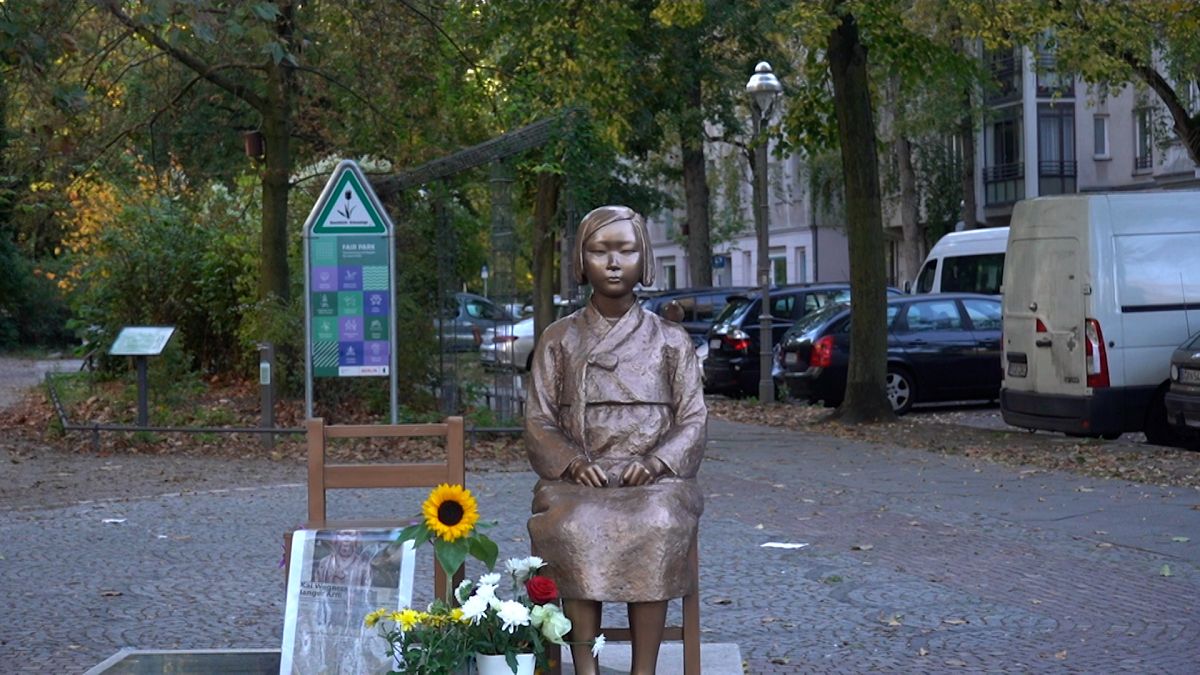A South Korean NGO is prepared to take legal action against a Berlin district that has ordered the removal of a statue commemorating victims of sexual abuse during World War II following pressure from Japan. The statue, known as the Statue of Peace, was erected four years ago near the Korea Verband’s museum. It serves as a memorial for those who suffered sexual abuse at the hands of Japanese soldiers, particularly the Korean “comfort women.” The Mitte local district has demanded that the statue be taken down by the end of the month, citing time limits for temporary art in public spaces.
Japan has been actively lobbying for the removal of the statue, prompting some politicians in Berlin to side with the country. The mayor of Berlin has described the statue as a one-sided portrayal after meeting with the Japanese foreign minister in Tokyo. The local government is currently in talks to replace the statue with a more general memorial for women who have experienced sexual violence during conflicts. This move is seen as an attempt to maintain a good partnership with Japan, which has prioritized economic and security ties with Germany over South Korea.
Despite Japan’s efforts to address the issue of comfort women, the Korean community in Berlin, as well as local residents, are adamant about keeping the Statue of Peace in place. A petition supporting the statue has garnered 3,000 signatures, with many individuals expressing their desire to preserve the memorial. The Korean NGO leading the legal action to prevent the statue’s removal insists that the memorial is essential for raising awareness about the plight of wartime sexual abuse victims and promoting peace and harmony in the community.
The ongoing dispute over the comfort women statue underscores the challenges of balancing historical accountability, diplomatic relations, and cultural sensitivity. While Japan has made efforts to address the issue and provided financial compensation to the victims, the presence of the Statue of Peace in Berlin continues to strain relations between Japanese and Korean communities. The German government’s response to the situation highlights the importance of freedom of opinion and the arts, as well as the need to find a balanced approach that respects the concerns of all parties involved.
As tensions escalate over the fate of the Statue of Peace, it is crucial for both Japan and South Korea to engage in constructive dialogue and find a mutually acceptable solution. The statue serves as a symbol of remembrance and reconciliation for the victims of sexual abuse during World War II and plays a significant role in fostering understanding and healing in the community. By respecting the historical significance of the statue and addressing the concerns of all stakeholders, Germany, Japan, and South Korea can work towards building stronger relationships based on mutual respect and cooperation. The outcome of this dispute will not only impact the local community in Berlin but also have broader implications for international relations and reconciliation efforts.











